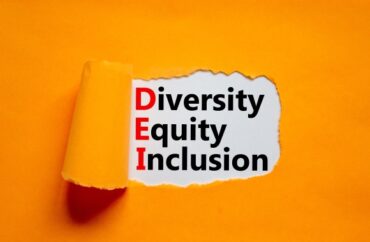
Growing evidence ‘rebranding’ is the solution campus leaders are using to sidestep legislative DEI bans
Many public universities in GOP-controlled states over the last couple years have been forced to shutter their diversity, equity and inclusion offices and programs thanks to legislative oversight.
But there’s growing concern that instead of actually doing away with such programs, DEI is simply being renamed, or rebranded, and it’s still business as usual, in many cases with former DEI deans transferred to newly named offices with effectively the same missions.
The latest watchdog to sound the alarm is Scott Yenor, senior director of state coalitions at the Claremont Institute’s Center for the American Way of Life and a professor of political science at Boise State University.
“Think your legislature successfully ‘shut down’ DEI programs at state universities? Not so fast. As the University of Wyoming reveals, DEI isn’t gone — it’s rebranding under new names,” Yenor posted on X.
Writing for City Journal, Yenor used the the University of Wyoming as a case in point. Earlier this year, after lawmakers cut its DEI funding, the university closed its Office of Diversity, Equity, and Inclusion and reassigned its staff, and administrators also banned DEI statements from the application process, he wrote.
Yet a closer look reveals that as DEI offices closed, many diversity efforts were rebranded under new names. Many of those offices’ personnel have simply gotten new job titles while still working on DEI projects.
A number of those rechristened efforts will proceed under the guidance of professor Brandon McElroy, appointed as vice provost for Access and Engagement in August. The office McElroy oversees will strive “to cultivate a diverse academic community through the recruitment and retention of students, faculty, and staff”—in other words, DEI under another name. Consider how the university closed the Office of Multicultural Affairs but opened the Pokes Center for Community Resources in its place. Any doubt about the center’s mission were dispelled by its announcement on social media: “We are still here!!!”
The new center has retained many of the former DEI office’s personnel. Melanie Vigil, formerly the program director of Multicultural Affairs, has become the assistant dean of Pokes. Maia Marces, the university’s former intersectional program coordinator, is a community resource coordinator in the new center. That’s also the new title for Bianca Infante De La Cruz, the former Latine Program coordinator.
Yenor’s piece is the latest in a stack of growing evidence that “rebranding” is the solution campus leaders are using to sidestep legislative DEI bans.
It’s not even some sort of covert undertaking. A New York Times headline in April blared: “With State Bans on D.E.I., Some Universities Find a Workaround: Rebranding.” The article reported:
At the University of Tennessee, the campus D.E.I. program is now called the Division of Access and Engagement.
Louisiana State University also rebranded its diversity office after Jeff Landry, a Trump-backed Republican, was elected governor last fall. Its Division of Inclusion, Civil Rights and Title IX is now called the Division of Engagement, Civil Rights and Title IX.
And at the University of Oklahoma, the diversity office is now the Division of Access and Opportunity.
In what appears to be an effort to placate or, even head fake, opponents of diversity and equity programs, university officials are relaunching their D.E.I. offices under different names, changing the titles of officials, and rewriting requirements to eliminate words like “diversity” and “equity.” In some cases, only the words have changed.
David Bray, a finance professor at Kennesaw State University, told the New York Times that diversity officials should have been fired — that would have been a real and final solution.
Under the rebranding trend, “It’s the same lipstick on the ideological pig,” said Bray, who is gay but opposes diversity programs. “As soon as D.E.I. was uncovered as political left, they now reinvent the language and have morphed into the ‘sense of belonging’ crew.”
Bray has shared his concerns with The College Fix as well over the situation at his school, where its Division of Diverse and Inclusive Excellence was renamed the Division of Organizational Effectiveness, Leadership Development, and Inclusive Excellence.
MORE: Ohio’s Kent State U. rebrands DEI efforts as lawmakers debate bill to outlaw it
IMAGE: Dmitry Demidovich / Shutterstock
Like The College Fix on Facebook / Follow us on Twitter




Add to the Discussion